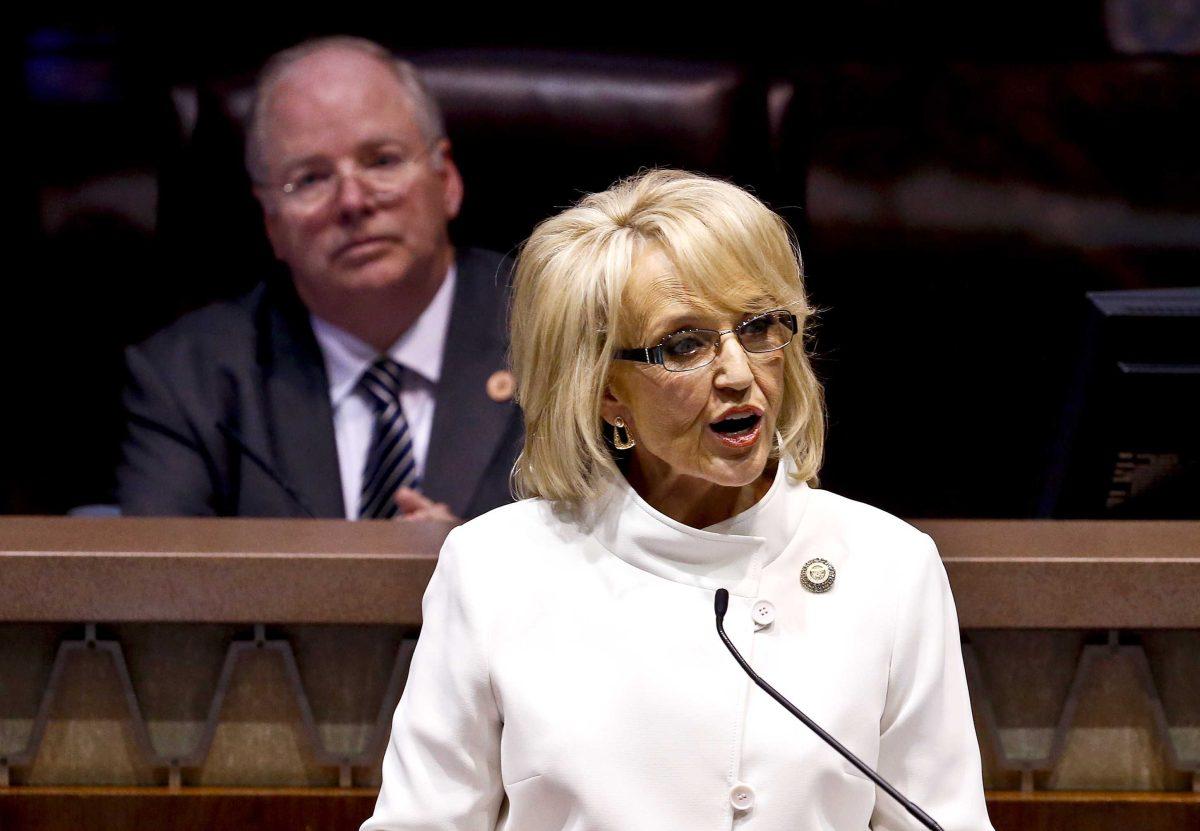HOENIX (AP) — Arizona Gov. Jan Brewer said Monday she plans to push for an expansion of the state’s Medicaid program under the federal health care law, a surprising decision that could have an impact on other Republican governors weighing a similar decision.
Brewer has opposed the federal health care law known as the Affordable Care Act, citing worries over a potential overreliance on federal funding.
A provision in the 2010 law allows for states to increase Medicaid coverage, and Brewer told lawmakers in her annual State of the State address on Monday that virtually all of the expansion would be funded by the federal government. Not taking the money wouldn’t contribute to the lowering of federal deficits, she said.
Any increase would also “include a circuit-breaker that automatically” would roll back enrollment if federal reimbursement rates decrease, Brewer said.
“I won’t allow Obamacare to become a bait-and-switch,” she said.
Brewer’s decision was being closely watched across the country, particularly since Arizona was among the states that sued to overturn Obama’s law. After the last summer’s Supreme Court ruling upholding the law, Brewer considered a partial expansion, but the administration rejected that approach.
Brewer on Monday cited President Barack Obama’s re-election and the Supreme Court ruling as evidence of the law’s permanence.
She also referenced a brief and unpleasant encounter between her and the president that was captured by photographers. The argument on a Mesa airport tarmac was a highly visible demonstration of the verbal and legal skirmishing that has regularly occurred between Brewer and Obama’s administration over illegal immigration and other issues.
A smiling Brewer told lawmakers that Arizona can’t simply wag its finger at the federal government.
“Trust me: I tried that once,” she said.
The Supreme Court ruling said states were free to accept or reject the expansion, and several GOP governors have said they will not go forward, including Rick Perry in Texas, Bobby Jindal in Louisiana and Nikki Haley in South Carolina.
Another Republican governor considering Medicaid expansion is Florida Gov. Rick Scott, who faces pressure from hospitals and other state constituencies but has said he’s concerned about the potential costs of the expansion.
“I think this speaks to how this is a very good offer on the table,” said Joan Alker, co-director of the Georgetown University Center for Children and Families. “This puts pressure on other governors, like Gov. Scott in Florida, where there is a lot of debate right now.”
Republicans have a majority in Arizona’s House and Senate, and Brewer’s announcement took even her own party’s Legislative leaders by surprise. The Legislature must approve the expansion.
“That was a bit of a shocker,” Senate President Andy Biggs told reporters after the speech.
The announcement was a surprise even to journalists who were provided an advance copy of Brewer’s speech — minus the section on the Medicaid expansion. Brewer said as recently as last week she would make a decision soon, but didn’t hint it would come in the State of the State address.
Seventeen states and Washington D.C. have now signed onto the expansion, and nine have opted out. The rest are weighing the decision.
Overall, the Medicaid expansion accounts for about half the 30 million uninsured people expected to eventually gain coverage under President Barack Obama’s health care overhaul.
The law expanded Medicaid to cover low-income people making up to 138 percent of the federal poverty level, or about $15,400 a year for a single person. That provision will mainly benefit low-income childless adults, who currently can’t get Medicaid in most states. Separately, the overhaul provides subsidized private insurance for middle-class households.
Under the legislation, Washington would pay the entire cost of the Medicaid expansion for the first three years, gradually phasing down to 90 percent of the cost after that. It’s a far more generous matching rate than the federal government provides for other parts of the Medicaid program.
Brewer told lawmakers that expanding Medicaid would help poor Arizonans and help hospitals and caregivers who now must give care without pay. An estimated 300,000 more Arizonans would be eligible for the state’s version of Medicaid under the full expansion.
Biggs said it was premature to say whether lawmakers would support the expansion.
“We don’t even know what the plan is,” he said.
Republican state Rep. John Kavanagh, an opponent of expanding Medicaid, said he doubted the governor’s plan will clear the Legislature.
“The Legislature doesn’t like Obamacare, and this is a critical part of it,” he said.
Senate Minority Leader Leah Landrum Taylor said not expanding Medicaid would continue to leave the poor without care and hospitals stuck with costs.
“The number of jobs that it’s going to create, the number of lives it’s going to save, it’s people that need the health care,” she said. “And the writing is on the wall. We can’t continue this way.”







